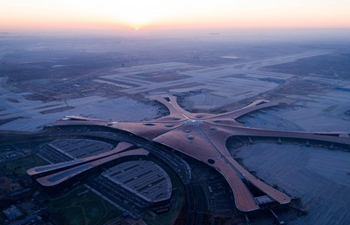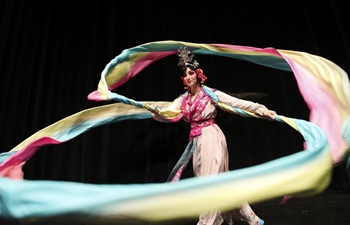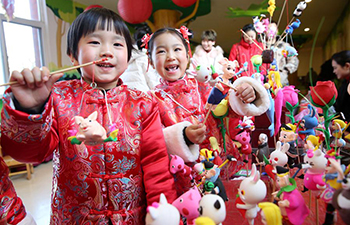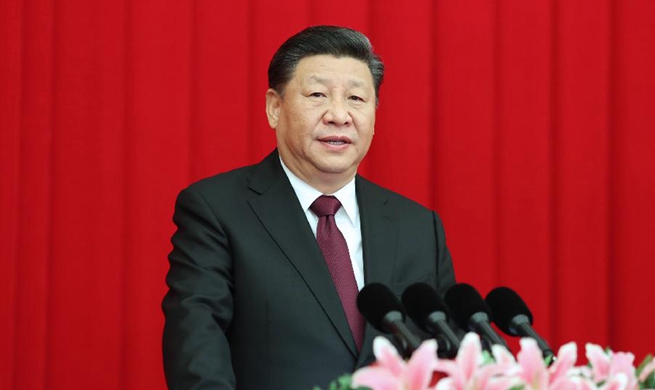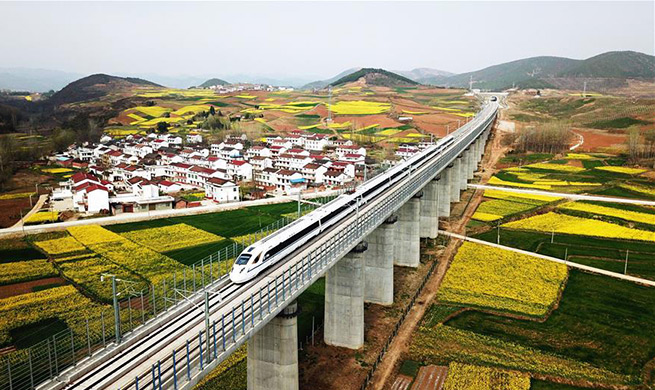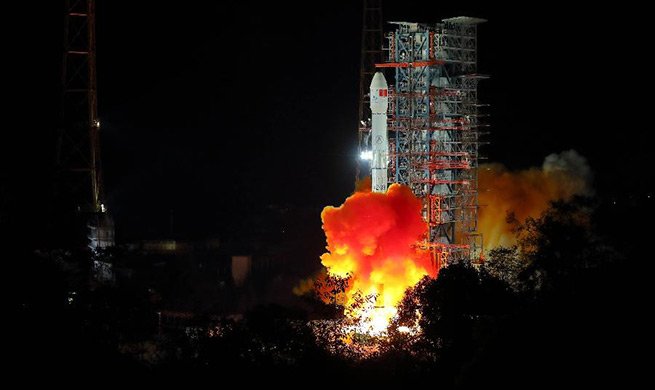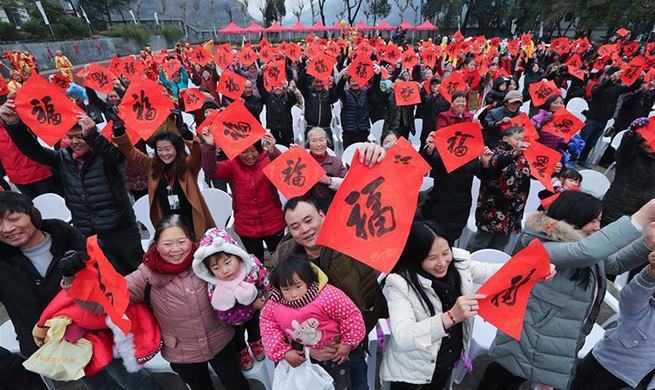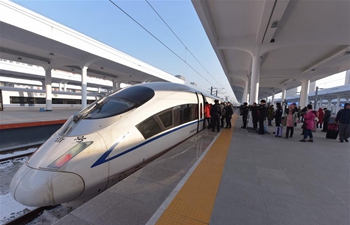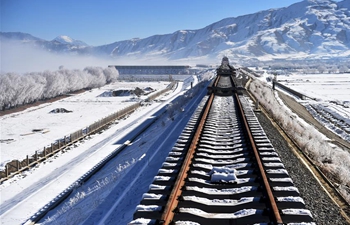ANKARA, Dec. 30 (Xinhua) -- As municipal elections are fast approaching in Turkey, President Recep Tayyip Erdogan's ruling party is longing to win once again the votes in the face of economic woes hurting households.
On Saturday, Erdogan, who is also the leader of the Justice and Development Party (AKP), ruling Turkey since 2002, announced as expected parliament speaker and former Prime Minister Binali Yildirim as his candidate for the mayorship of Istanbul, the country's cultural and commercial capital with 15 million inhabitants.
"We have chosen someone who is the most experienced and senior one. He is my dear friend with whom I have joined and walked together in politics, Binali Yildirim," said the Turkish leader in Istanbul during an AKP campaign rally.
Candidates for other provinces and towns were previously announced by the president who faces a strong challenge in large cities because of a slowing economy, high inflation and rising unemployment.
The impact of the inflation which rose to some 22 percent on purchasing power will be surely foremost in consumers minds when they head to the polls in three months.
A survey by Metropoll pollster last month showed Erdogan's personal approval had fallen below 40 percent, a figure which was around 50 percent 8 months ago.
Municipal elections will be held on March 31 and tens of thousands of candidates from political parties will compete for 1,398 municipalities in 81 provinces. Local elections are held every five years in Turkey.
The AKP who has never lost an election since it first came to power would like to repeat its success, but with grim economic indicators, Erdogan and the AKP have a tall order in their hands if they want to retain control of Turkey's economic and political centers, Istanbul and Ankara, said experts.
"What makes the upcoming local elections more important than a simple vote to determine local administrators is the fact that the opposition is trying to make it 'a referendum vote' for the Turkish government," said political analyst Ismet Berkan in a recent article for The New Turkey.
The upcoming municipal elections will be the first elections subsequent to the establishment of the Turkish presidential system on June 24, 2018. It is a matter of prestige for Erdogan to win the March 31 vote as the new executive president.
In Turkey, mayors hand out large contracts, services and also jobs, and this is how Erdogan, a former mayor of Istanbul in the 1990s, consolidated his political career and fortune on which he built the AKP.
Therefore, these local elections are held rather in a general elections atmosphere in Turkey with serious political and economic polemics and tensions between the government and opposition parties.
The AKP and the Nationalist Movement Party (MHP) have decided to repeat the alliance that they had formed in the June elections which changed Turkey's decades-long political structure, shifting from a parliamentary system to an executive presidential one, granting Erdogan sweeping powers.
Despite some early disagreements, AKP and MHP decided to go on as part of an alliance for the local elections as well, yet in a limited range but still covering Turkey's three cities with the largest populations, Istanbul, Ankara, and Izmir, where around 25 million of Turkey's total 81 million people live.
Two opposition movements, the People's Republican Party (CHP) and the Good Party (IYI), have with great difficulty agreed to cooperate in certain provinces.
In Istanbul, Binali Yildirim's main rival will be CHP candidate Ekrem Imamoglu, actual mayor for the city's Beylikduzu district, and Mansur Yavas from CHP in Ankara will compete against AKP candidate Mehmet Ozhaseki to break a long-running AKP administration.
Turkey has been under the strain of consecutive elections in the last four years towards the implementation of a new government system.
"After the local elections, we will enter a three-year period without elections, which will last until 2022. Considering the fact that we've continuously been under an atmosphere of elections since March 2014 (local elections), which have been pretty fierce, this three-year period will certainly feel different for the country," pointed out Berkan.





